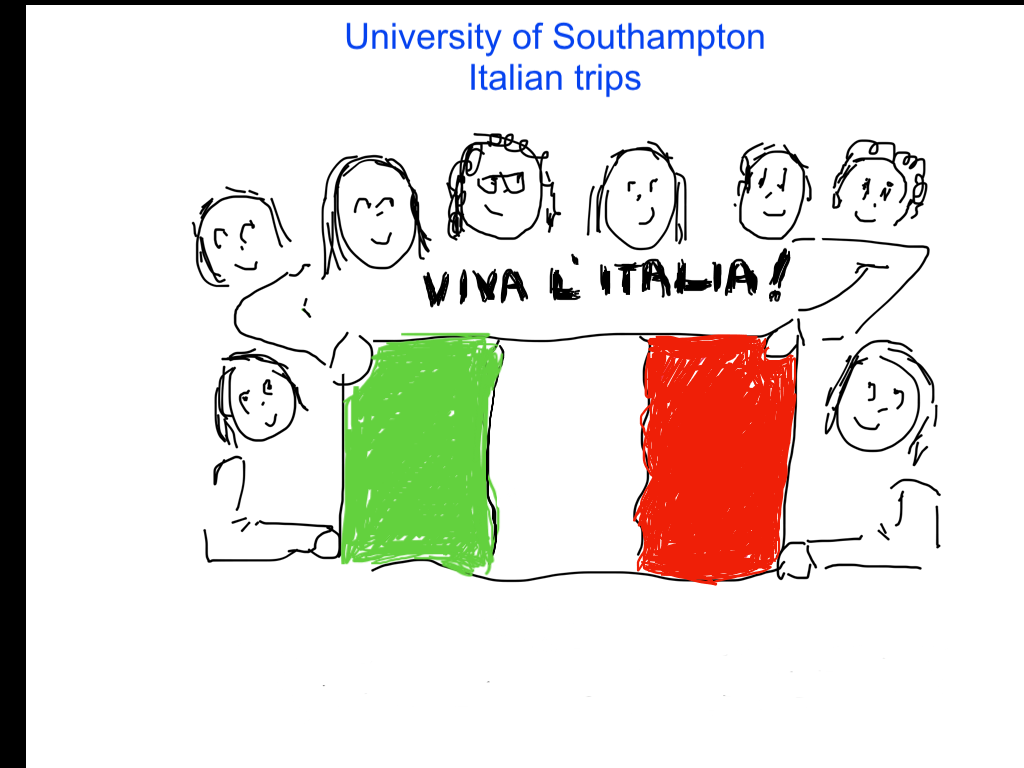 Courtesy of Simon Blackmore, Oxford ( all rights reserved)
Courtesy of Simon Blackmore, Oxford ( all rights reserved)
This space is intended to showcase my students’ experiences and mine whilst on field trip to Italy; to raise awareness about the benefits and impact of field trips as a complement to language learning and also to intellectual dialogue and development.
The title of this blog: Italy DIY, oltre alla pizza c’e’ di piu’ (there is more to Italy than just pizza..) is meant to highlight the personal and individual journey that each student will be exploring whilst abroad, according to their own interests. No journey will be the same, however each of them will contribute to expand knowledge and inform future students of Italian at University of Southampton.
I have been teaching Italian accelerated courses 1+2 ab-initio for few years, taking students with no knowledge of Italian language to a level where they are able to use their language skills in real life situations in Italy.
However there is evidence of a substantial gap of knowledge related to culture, lifestyle and practical everyday activities which students are very eager to compensate.
Every year , half way through semester two, I witness students’ demands ( borderline begging…. 🙂 to arrange a trip and spend some time in Italy to test their newly acquired language skills.
By then in fact, their language skills have reached a surprising level, considering they have only been studying Italian for few months (the beauty of accelerated learning…:)
Although students can be quite industrious and creative when it comes to arranging trips abroad, I realized, since we started our field trips at University of Southampton, that students’ requests are based on few principles which practitioners in charge should not underestimate.
Field trips are seen by students as:
- end of year celebration of achievements in learning
- enhancement of a learning community which has been established in class throughout the year
-
a more spontaneous teaching and learning experience which allows students to engage multiple modalities, not necessarily linked to their own discipline but branching out to new areas and embracing interdisciplinarity
-
a student-centered , hands on experience, far away from the limitations of language and cultural learning in the classroom: the focus here is the world at large
- unique relationships developed outside the classroom among students themselves and and among students and teachers
The points above constitute the basis and the reason to be of University of Southampton italian field trips and although still young at heart (we have been running trips only for two years) this experience is proving very positive and more successful from one year to another.
These trips have the potential to facilitate and enhance students’ research skills by making them comparing and evaluating authentic resources and having hands on experiences in the target language country, fulfilling the intercultural aspect of foreign language studies.
The deeper value of this project lies in the understanding of the cultural aspect which is inseparable from language learning and is clearly highlighted in this HSBC advert:
